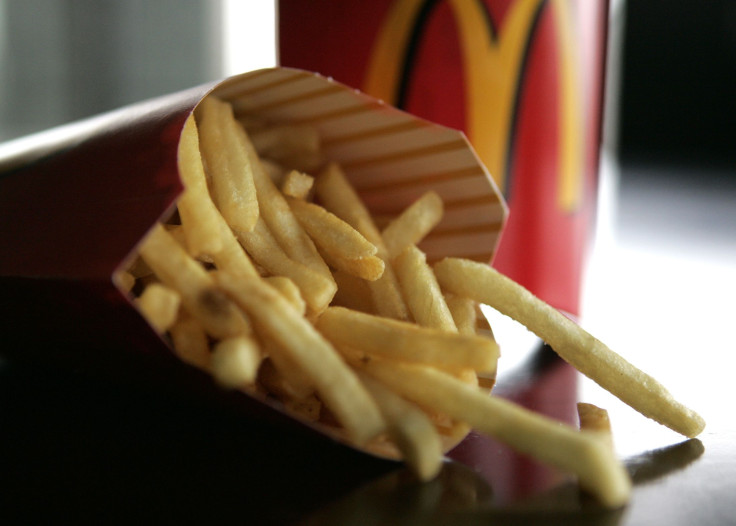Knowing How Long It Will Take To Burn Calories Off Could Promote A Healthier Diet

If you were deterred by signs displaying the amount of calories in your fast food meal wait until you're told how much exercise it will take to burn those calories.
A researcher team from Texas Christian University in Fort Worth says telling diners how much exercise it will take to burn off the calories they are eating will help promote a healthier diet.
"This is the first study to look at the effects of displaying minutes of brisk walking needed to burn food calories on the calories ordered and consumed," said senior author Meena Shah
Shah along with lead researcher Ashlei James analyzed the dining habits of 300 people, aged 18 to 30, who were unaware of the purpose of this study. Participants were either given a menu with no calorie information, a menu with the amount of calories in each meal and a menu with the amount of calories and how long it would take to walk the calories off.
To give an example, researchers said a double cheeseburger from your average fast food restaurant would take a woman approximately two hours of brisk walking to burn off.
"Brisk walking is something nearly everyone can relate to, which is why we displayed on the menu the minutes of brisk walking needed to burn food calories," James added.
Those were given the menu with a calorie count and the amount of exercise time, on average, consumed 100 less calories than participants with the other two menus.
Researchers noticed that people who were given the other two menus ordered and consumed the same amount, challenging the effectiveness of current fast food nutrition guidelines.
"We need a more effective strategy to encourage people to order and consume fewer calories from restaurant menus," said Shah.
The US Food and Drug Administration offers an interactive learning program that helps people achieve a healthier diet by controlling the amount of calories they consume known as Make Your Calories Count. Users can manage how many calories are in each meal, the nutritional value and how much exercise it will take to compensate for each meal.
The team will present their study's findings at the Experimental Biology 2013 meeting this week in Boston.
Published by Medicaldaily.com



























